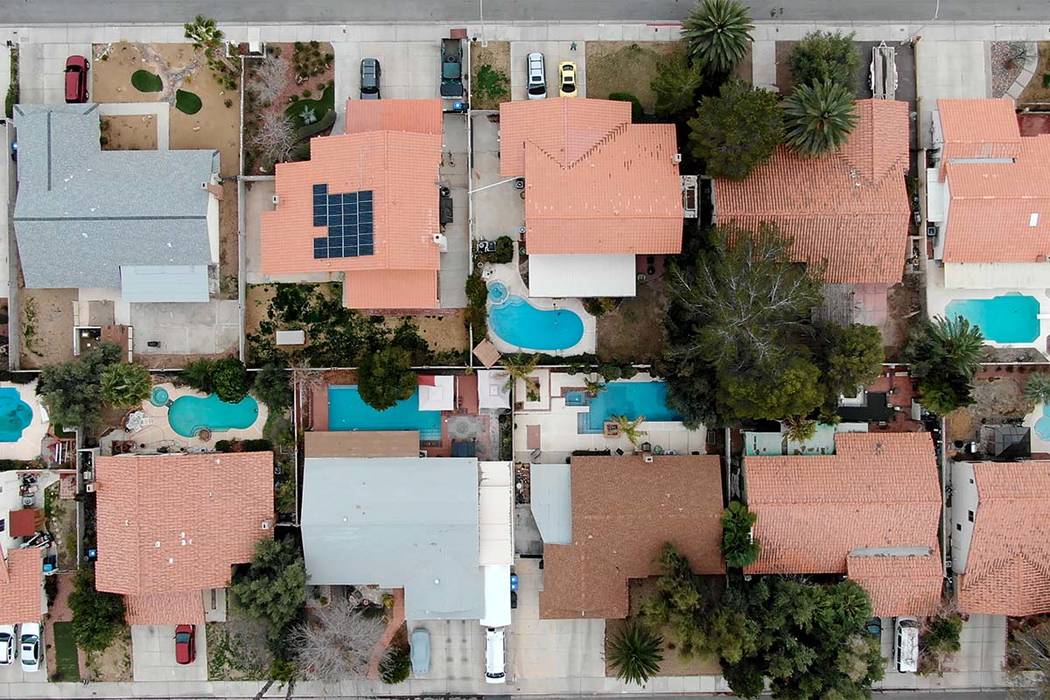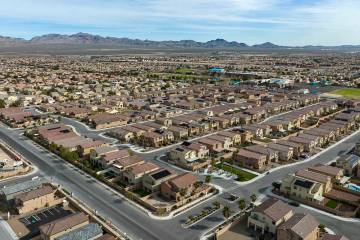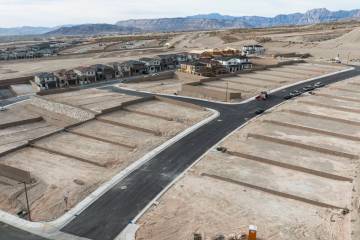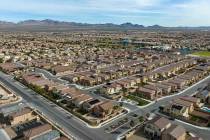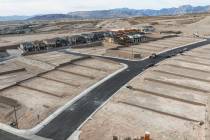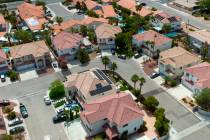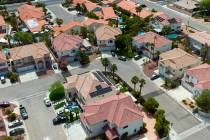Housing economist weighs in on trends in Las Vegas and US
After heating up in 2018, Las Vegas’ housing market has cooled off this year. Price growth has slowed, buyers have picked up fewer houses, and the once-shrunken tally of available listings has shot back up.
How do things here compare with other cities? Frank Nothaft, chief economist at housing tracker CoreLogic, sat down with the Las Vegas Review-Journal on Monday to talk about it.
Nothaft, who was in town for a convention, met with the Review-Journal at The Westin. The interview was edited for length and clarity.
Have you seen other big cities experience all or some of the same trends as Las Vegas this year?
Absolutely; it’s generally the high-cost cities. And Las Vegas is relatively high-cost compared to a lot of other places – not maybe L.A. and San Francisco, but it has gotten more expensive relative to some more moderately priced areas. High-cost markets have seen a significant slowdown in price growth as well as in the amount of sales.
What are the main reasons for the slowdown? Was it because there was such fast price growth last year, and prices got so high that you had affordability problems?
I think the main reason is affordability. Prices have gone up a lot, but mortgage rates really shot up at the end of 2018; 30-year fixed-rate mortgage rates were up at 5 percent. That knocked the wind out of the sail of potential homebuyers who were in the marketplace. They pulled back, home sales fell, and sellers were finally willing to concede a bit on price, and that’s one reason why we saw price growth slow or even come down in a number of markets. Markets that were more affordable have actually bounced back now because mortgage rates have fallen to about 3.5 percent.
The housing market is always prone to ups and downs. How has the slowdown this year compared to prior ones, especially the cataclysmic crash of the Great Recession?
It pales in the comparison to the cataclysmic crash of 2007 and 2008; that was really of historic and legendary proportions. I have to admit, I am still surprised that we don’t see a stronger pickup in construction and home sales, given where we are with mortgage rates and the robust economy. I’ve looked at the whole post-World War II period – that stretches back 70 years – and this is the first time we’ve got sub-4 percent unemployment and sub-4 percent mortgage rates. If you told me that a year ago, I would have told you, Great, the housing market’s gonna be cooking on all burners.
But it’s not.
It’s not. The first half of the year was dismal, but even the pickup we’re seeing so far, I would have thought we’d see more.
Do you still think it comes down to affordability?
It’s affordability, but there are other issues at play too. One thing we’re seeing is investors are competing with first-time buyers in the entry-level segment. Several years ago, big companies would buy thousands of home at a time and build up a real inventory. They’re still buying houses, but what’s come back the last few years is the individual investor, the so-called mom-and-pop.
You’ve also had the influx of investors like Opendoor, Offerpad and Zillow. They’ve been buying homes.
And it’s primarily the entry-level, more moderately priced homes. That’s adding to the demand and putting upward pressure on prices, and we still have limited supply. Inventory in that entry-level segment is very lean compared to the inventory of more expensive homes.
Do you think fears of a possible recession have been crimping home sales in any way?
I could see some people being nervous or concerned, especially if they feel their job might potentially be at risk, or if they’re in an industry that might be at risk, or if they’re living in a part of the country that could be affected more. But for the most part, I think most people feel pretty optimistic. Consumer confidence still is at a pretty high level. To me, that means people are feeling financially secure. If they’re feeling secure that way, they’re much more likely, if they’ve got their financial house in order, to go out and buy a house.
Contact Eli Segall at esegall@reviewjournal.com or 702-383-0342. Follow @eli_segall on Twitter.



